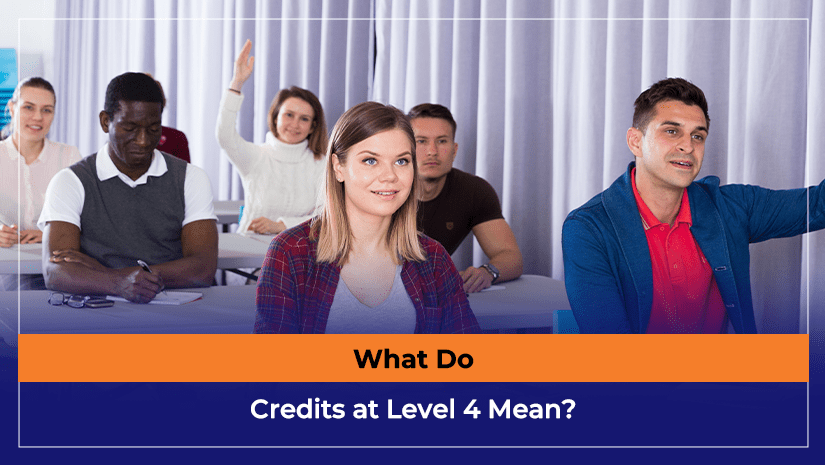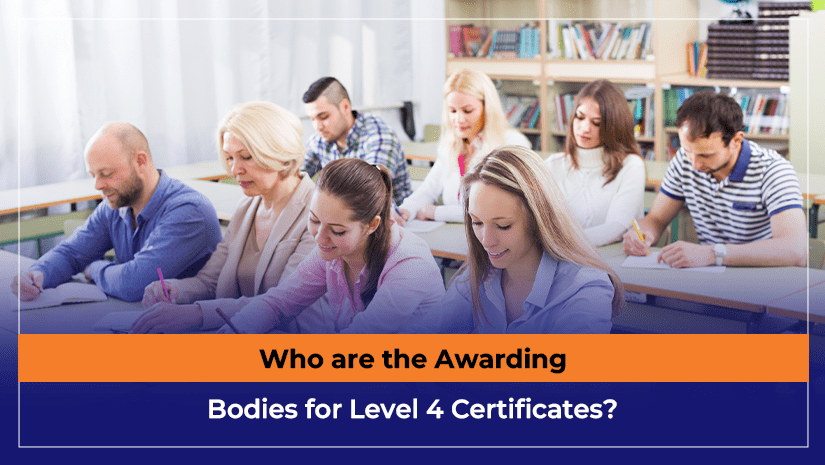
Wondering what is a Level 4 course? Or what is a level 4 course equivalent to? It's simply more advanced than the basics. These qualifications are equivalent to the first year of a bachelor's degree. This level is where you start getting deeper knowledge about a specific thing you're interested in.
Level 4 qualifications are like a key that opens doors to new opportunities. They help you go beyond just knowing the basics. They are recognized for their relevance in both academic and professional settings.
In the United Kingdom, Level 4 qualifications encompass a diverse range of educational pathways. Each of these offers unique advantages and specialized knowledge.
As we’ve mentioned, level 4 qualification UK is equivalent to the first year of a bachelor's degree. So, completion of secondary education (like A-levels or their equivalents) is a fundamental requirement. Also, prospective learners are expected to be at least 18 years old at the time of entry (in most cases).
The entry criteria for level 4 qualification courses, particularly for vocational or academic courses, can be more specific. Vocational courses may prioritize relevant work experience. Meanwhile, academic courses might lean towards specific subject-related qualifications.

Level 4 Higher Education Qualifications offer a diverse range of educational pathways. Notable options include the Certificate of Higher Education (CertHE) and the Higher National Certificate (HNC). The CertHE acts as a foundational standalone qualification, while the HNC emphasizes practical skills.
Comparing Level 4 with other qualifications, the key differences lie in the
For example, Level 5 (e.g., DipHE) signifies a progression toward specialization. Bachelor's degrees (Level 6) and postgraduate qualifications (Level 7 and above) offer more comprehensive expertise. They are often prerequisites for specific professional roles. Meanwhile, Level 4 provides a solid foundation for all these.
Level 4 qualifications open doors to various career paths. From entry-level positions to roles that require specialized knowledge, upon finishing the course, you are ready to start working. Graduates can pursue careers relevant to their field of study.
Level 4 qualification works as the first step into higher education. Completing this level can pave the way for higher education or professional certifications.
Also Read:
The credits and qualifications framework in the education system is important to know first. In the UK, qualifications are structured within a framework. This framework defines their level of difficulty and complexity. Here is an overview:
Positioned above Level 3 and below higher levels, such as Level 5 and beyond, Level 4 serves as a bridge between foundational and advanced education. So we can say that level 4 qualifications hold a distinctive place within this framework.

Credits are quantitative measures of the hours of learning invested in a course. Each credit, on average, represents around 10 hours of study. For context, a full-time year of education typically equals 120 credits.
Credit values will be assigned to all approved level 4 courses. There are several types of Level 4 qualifications.
Now, why credits are important? Because credits contribute to educational progression and qualifications.
Once you've figured out the level and credits, the next step is to make sure the course you want to join is listed on the RQF (Regulated Qualifications Framework). The RQF is a framework that categorizes qualifications based on their level of difficulty and complexity.
The RQF register is easy to access and search. You can find not only courses currently available but also ones that might not be taught anymore. This makes it a handy tool for picking the right course for your future education and career plans.

An authorized education provider, like a university or private training facility, is responsible for awarding all recognized qualifications. Some of the prominent ones offering Level 4 qualifications include:
The certificate from a private education provider will come from the awarding body. But this might not be the same as the college or school where the instruction was given.
Awarding bodies for qualifications are responsible for maintaining quality and standards. Their role includes
Level 4 courses may pose challenges like
However, the rewards of completing a Level 4 course can be worth it. You’ll have enhanced knowledge, improved employability, and the potential for further academic advancement. It’ll open doors to a variety of career paths for you.
Comparing Level 4 with other educational levels highlights the progression in complexity and specialization.
Level 4 is the first step, giving you a basic understanding. As you climb to higher levels (Levels 5-8), you gain more specialized knowledge, like going up each step. This progression doesn't just make you smarter; it opens doors to better and more exciting jobs.
Level 4 students have access to a variety of resources to enhance their learning experience:
As a student of Level 4 courses, you can get the benefit from robust support systems like:
Level 4 qualifications serve as a vital gateway to higher education and career opportunities. Hope this guidance will give you a clear idea of what is a Level 4 course and other relevant info. So that you can consider why and how Level 4 courses can be a valuable pathway to your career.

July 22 2025

July 22 2025

February 29 2024

June 06 2024

 Dr. Shafiq
Dr. Shafiq
 February 25 2024
February 25 2024
 05:40:00
05:40:00
Do you have a career plan in a Senior Care or Supervisory Care position? If so, a Level 3 Diploma will help...
Read more...
 Dr. Shafiq
Dr. Shafiq
 February 25 2024
February 25 2024
 05:43:00
05:43:00
If you are living in the UK or planning to do that, you must know about the education system there. The UK&...
Read more...
 Dr. Shafiq
Dr. Shafiq
 February 25 2024
February 25 2024
 05:50:00
05:50:00
In the recent past, you had to have a four-year bachelor’s degree to start a career. With the rapid c...
Read more...